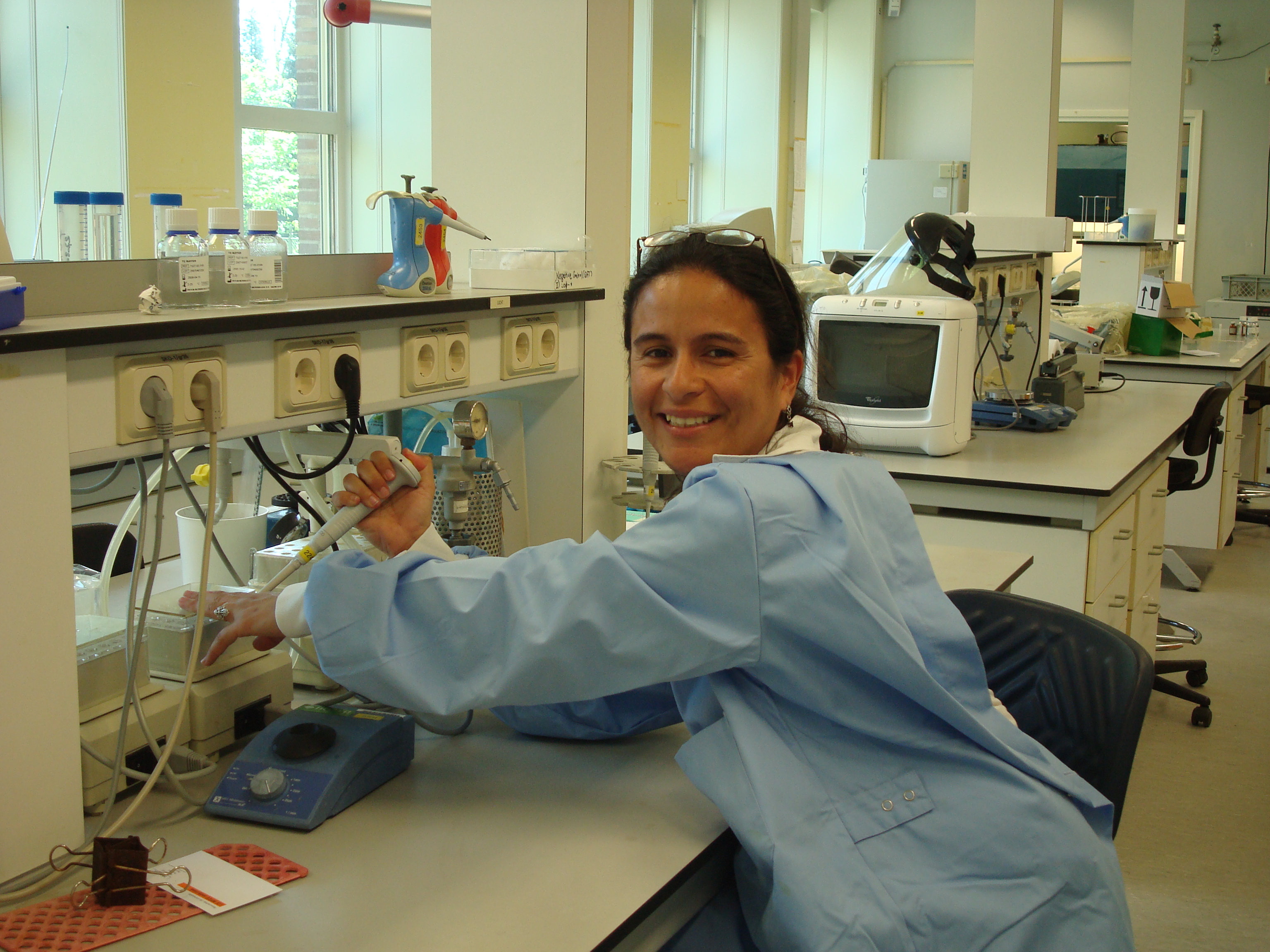María Eugenia Castellanos has been awarded a 2016-2017 Schlumberger Foundation Faculty for the Future Fellowship to fund her research identifying the risk factors associated with tuberculosis transmission in Guatemala and how they contribute to the spread of the disease in the Guatemalan population.
Castellanos is a doctoral student studying epidemiology in the UGA College of Public Health. The one-year, renewable Schlumberger Foundation grant provides women scientists from developing and emerging countries up to $50,000 to pursue advanced degrees in a science, technology, engineering or mathematics field.
“The leading causes of death in Guatemala are preventable and treatable infectious diseases,” Castellanos said. “Tuberculosis, in particular, is an illness that affects the most vulnerable people and one that we have not been able to reduce the prevalence of in the last 10 years.”
For her project, Castellanos will analyze isolates of the bacteria that causes mycobacterium tuberculosis from patients at Clínica Familiar “Luis Angel García,” an HIV specialty clinic within Guatemala City’s General Hospital.
HIV-positive persons are at particular risk for TB infection. Her research will not only identify the strains of TB more prevalent in this particularly vulnerable population, it will also look at the clinical and epidemiological risk factors that might increase a patient’s chance of having a recent transmission of this disease.
“If we understand the main risk factors that lead a patient to have a particular strain of TB, we can create interventions that will allow health policymakers in Guatemala to direct targeted TB control measures at high-risk populations,” she said.
“Over the last 20 years, there have only been a handful of papers published about tuberculosis in Guatemala. Not many people are able to do any type of research, often because of lack of funding and lack of resources, so I think this is going to be very important work.”
Castellanos received her bachelor’s degree in chemical biology from the Universidad de San Carlos de Guatemala in 2005 and, with the support of a Joint Japan-Inter-American Development Bank Scholarship, traveled to England to study tuberculosis at University of Liverpool School of Tropical Medicine. She completed a master’s degree in medical microbiology there in 2008.
Returning to her hometown of Guatemala City, Castellanos accepted a position at the Universidad del Valle de Guatemala teaching and working as a research assistant in the Malaria and Vector Biology Unit of the university’s Center for Health Studies.
In 2014, Castellanos came to the U.S. supported by a Fulbright fellowship and a desire to pursue a doctoral degree under the mentorship of Dr. Christopher Whalen, Ernest Corn Professor of Infectious Disease Epidemiology at the UGA College of Public Health.
“Dr. Whalen is one of the leading TB researchers in the world with over 25 years working on TB in low-income, international settings; and he is the main reason I chose UGA for my graduate studies,” Castellanos said. “I feel proud to be doing something, in collaboration both with Dr. Whalen and a great group of talented Guatemalan researchers, that we, the people of Guatemala, can do to help our country. The only way that we will be able to advance is if we start shaping our fate.”
Recognizing the link between science, technology and socioeconomic development, as well as the role of education in realizing individual potential, the Schlumberger Foundation established its flagship program, Faculty for the Future, in 2004. Since then, 560 women from 78 emerging countries have received Faculty for the Future fellowships to pursue advanced graduate studies at top universities abroad.
Castellanos is the second doctoral student from the college’s department of epidemiology and biostatistics to receive the prestigious and highly competitive international award. Dr. Jane Mutanga-Mutembo, whose fellowship was renewed for a second year, is developing mobile technology in Zambia to help people living with HIV maintain adherence to the lifelong medication regimens needed to keep the virus suppressed.
“Guatemala is definitely a country where machismo is still very prevalent,” Castellanos said. “And combined with lack of financial resources, women in my country don’t tend to be able to advance at the graduate level and earn a master’s or Ph.D. degree. I feel as more women are able achieve this level of success, we can do more for the women who come after.”
After the completion of her degree, Castellanos plans to return to Universidad del Valle de Guatemala to build her own research program in tuberculosis and ultimately, she hopes, participate in the establishment of a leading research center for infectious diseases in the Central American region.
“There is still a lot to do in the study of the epidemiology of tuberculosis and other infectious diseases in Guatemala and Central America,” Castellanos said. “My dream is that my Ph.D. program will permit me to better participate in their control and management, as it can be a doorway to the improvement in the lives of many Guatemalan people. That’s big, but, yeah, that is my dream.”
– Rebecca Ayer
The original news release can be found on UGA Today.
Posted June 15, 2016.







